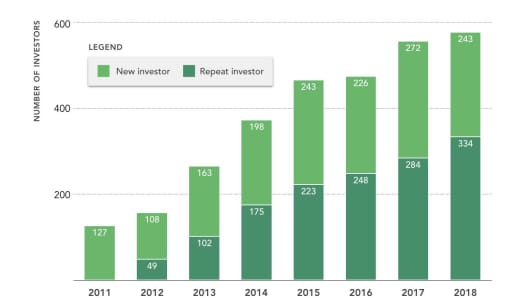Zymeworks Inc. (NYSE/TSX: ZYME), a clinical-stage biopharmaceutical company developing multifunctional biotherapeutics, today reviewed its key 2018 accomplishments and outlined the Company’s priorities for 2019.
“With our clinical, preclinical, and business development achievements in 2018, along with a robust balance sheet, we believe we are in a strong position to continue delivering on our corporate objectives in 2019 and beyond,” said Ali Tehrani, Ph.D., President and CEO of Zymeworks. “Our priorities include aggressively advancing our clinical and preclinical programs and continuing the development of our therapeutic platforms, which not only underpin our in-house pipeline but have also served as the basis of eight major pharmaceutical partnerships. We remain committed to our mission of creating novel biotherapeutics that allow patients worldwide to return home to their loved ones, disease free.”
2018 Achievements
- Presented Expanded ZW25 Data, Underscoring its Anti-Tumor Activity and Tolerability
Zymeworks reported clinical results for ZW25, a novel Azymetric™ bispecific HER2-targeting antibody, at multiple medical meetings. Data continues to demonstrate ZW25’s robust single-agent anti-tumor activity and tolerability in heavily pretreated patients across a variety of HER2-expressing cancers.
- ZW49 Investigational New Drug (IND) Application Accepted by the FDA
ZW49, Zymeworks’ second clinical candidate, is a novel bispecific HER2-targeting antibody drug conjugate. IND-enabling studies demonstrated promising efficacy and tolerability, suggesting a wide therapeutic window.
- New Corporate Partnerships Established and Existing Ones Expanded
Zymeworks entered into new collaborations with BeiGene, which includes a licensing agreement in the Asia Pacific region (excluding Japan) for ZW25 and ZW49, and with LEO Pharma, which expands Zymeworks’ pipeline into new disease areas. The Company also expanded its existing collaborations with Daiichi Sankyo and Celgene. Zymeworks currently has eight active collaborations that offer up to US$7.6 billion in potential milestone payments plus royalties.
- Drug Candidate from First Corporate Partnership Poised to Enter Clinical Studies
Eli Lilly submitted an IND application for one of its bispecific antibodies enabled by Zymeworks’ Azymetric platform resulting in a milestone payment to the Company.
- Introduced Robust Immune Oncology (IO) Preclinical Pipeline
Zymeworks unveiled a number of IO programs showcasing the versatility of its platform technologies. Leveraging the Azymetric platform, Zymeworks showed how optimizing bispecific geometry and formats can maximize activity, potentially creating new classes of precision therapeutics.
- Expanded Executive Leadership Team
Tony Polverino, Ph.D., joined Zymeworks as Executive VP of Early Development and CSO. In this newly created role, he oversees the Company’s R&D strategy and advances product candidates from discovery through translational research/early development.
- Built Strong Balance Sheet
Zymeworks completed a US$97.8 million public financing and added non-dilutive capital from its corporate partnerships totaling US$89 million in 2018.
2019 Corporate Priorities
Zymeworks will focus on achieving the following in 2019:
- Initiating multiple Phase 2 studies for ZW25
- Expanding the global clinical development of ZW25 into Asia and Europe
- Reporting ZW25 data from combination studies (chemotherapy and/or targeted agents)
- Reporting data from the Phase 1 trial for ZW49
- Establishing additional drug development collaborations with a focus on new platforms
In addition, Zymeworks expects its pharmaceutical partners to continue nominating new Azymetric bispecific antibody therapeutic candidates for clinical development in 2019.


